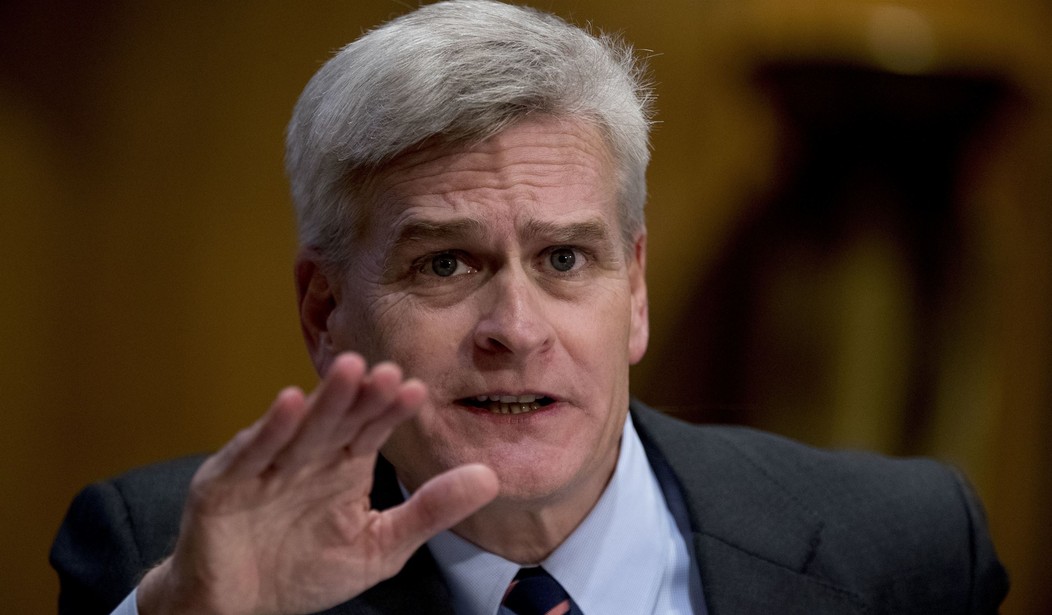The Bill of Rights was written to solidify that we had certain individual, personal freedoms that the government the U.S. Constitution was laying the foundation for would not be able to take away from us. It’s pretty significant that among the very first of those freedoms is the freedom of speech. It is an extremely vital part of the democratic process, and any time the government tries to infringe on it, we should be out there, actively fighting to keep our rights.
So, if you like the idea of free speech and want to have the ability to use your right to free speech online, even if the woke mob doesn’t share your opinion (and if you dislike the idea of giving a lot of money to trial lawyers), you will probably not like the Internet PACT Act being proposed in the Senate.
This little piece of legislation has been introduced by U.S. Senators Bill Cassidy, M.D. (R-LA), Brian Schatz (D-HI), and John Thune (R-SD). It’s being touted as a bipartisan bit of legislation meant to protect social media users by forcing companies to be more transparent about their content moderation practices.
There is widespread bipartisan agreement that social media platforms have inconsistent and opaque content moderation practices due to a lack of accountability. To address this, the Internet PACT Act creates more transparency by:
- Requiring online platforms to explain their content moderation practices in an acceptable use policy that is easily accessible to consumers;
- Implementing biannual reporting requirements for online platforms that includes disaggregated statistics on content that has been removed, demonetized, or deprioritized; and
- Promoting open collaboration and sharing of industry best practices and guidelines through a National Institute of Standards and Technology-led voluntary framework.

Cassidy, a Republican from my state of Louisiana, ran as a Trump Republican in 2020 before turning around and voting to impeach him the second time. He is also one of the Republicans who were vital in getting President Joe Biden’s massive infrastructure plan/giveaway across the finish line. He’s not particularly beloved by his own state’s party, so he is having to do more and more “bipartisan” work to get his plans to the floor.
The key to this plan, just like all the other plans, is removing Section 230 protections against federal civil liability – something that has become a goal among politicians across the aisle lately. However, if you like freedom of speech, it’s a plan that invites more disaster.
Part of the reason that we’re conservatives is that we don’t want more government interference in our lives. The more they meddle, the worse things tend to get overall. Removing Section 230 opens social media companies up to additional regulation and oversight by the Department of Justice, which is currently so corrupt and politically motivated that it would be difficult to trust them to be objective for a long time. It also opens up oversight from the Federal Trade Commission, which is likewise a terrible idea.
That means more power for Merrick Garland. Even more troubling, that means more power for Lina Kahn. I would hope conservatives can agree that giving her more power is never going to be a good thing.
More troubling, however, isn’t the fact that this bill opens up these companies to lawsuits from the government–it opens them up to lawsuits from anyone.
In Cassidy’s own state, the trial lawyers pretty much run the entire Democratic Party. This would be a gift to them. Yes, the sound you’re hearing right now is the sound of the trial lawyers putting up new billboards on every interstate and highway, now promising to help you take a crack at these large, well-funded companies.
This is where free speech is going to be stifled. The lawyers at large corporations are risk-averse by nature, like any corporate or government bureaucracy. They aren’t going to be aggressive and spend a lot of money defending decisions to keep up content in court. Instead, due to risk avoidance, you will see legitimate speech being removed, demonetized, etc.
And it isn’t just these big tech firms and social media companies who would end up in the cross-hairs, either. How many liberal lawyers do you think are out there, ready to file a lawsuit against RedState? That’s where this law, and many like it, run into trouble. Whatever the intentions are at the beginning, the end result is that more speech, not less, ends up being censored and conservatives often bear the much larger burden in this regard.













Join the conversation as a VIP Member